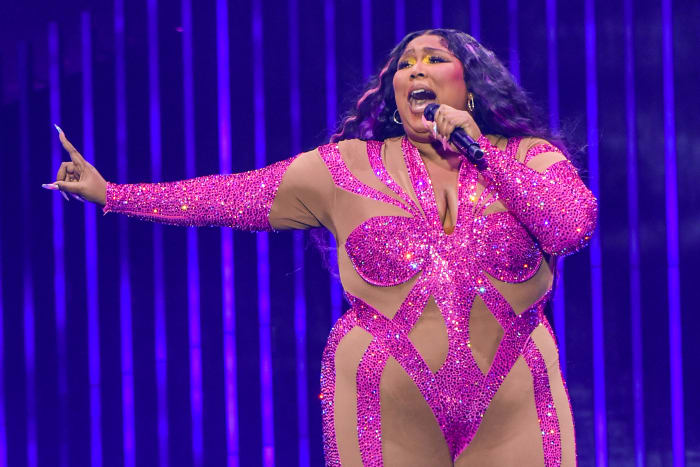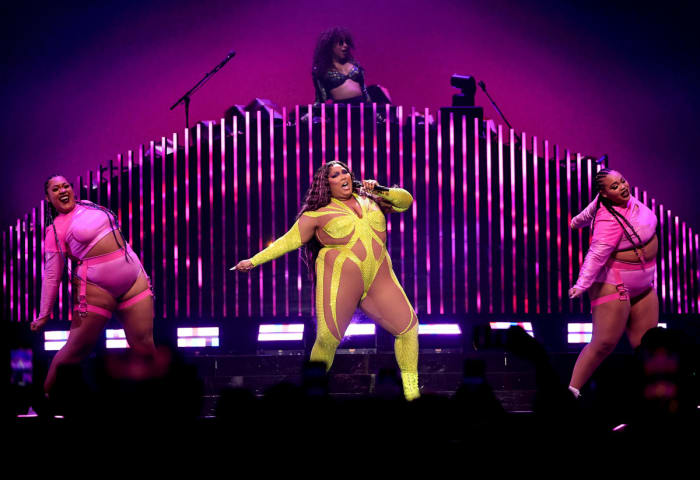Lizzo Explains Why Her Outfits Are ‘Political and Feminist’

Lizzo performs onstage at Little Caesars Arena in Detroit, Michigan.
Aaron J. Thornton/Getty Images
Lizzo’s claim to fame might be her voice, but her stage presence would be nothing without her bright funky outfits. The “Truth Hurts” singer opened up in her Vanity Fair cover story on Oct. 11 about stage apparel and the criticism she has received. All she has to say to the haters: “F--k them.”
People are quick to say that Lizzo is sexualizing women when she wears her colorful, sometimes skimpy, leotards.
“When it’s sexual, it’s mine. When it’s sexualized, someone is doing it to me or taking it from me,” Lizzo responds. “Black women are hypersexualized all the time, and masculinized simultaneously. Because of the structure of racism, if you’re thinner and lighter, or your features are narrow, you’re closer to being a woman.”
Leotards are normal stage outfits, just look at Dua Lipa, Jennifer Lopez, Miley Cyrus, Katy Perry, Beyoncé and almost any mainstream female artist. But, when Lizzo does the same, for some reason it fires up the nay-sayers.
“It seemed like it became the industry standard for everyone,” she said. “I wanted to be like a dancer and also, it was kind of political and feminist in my eyes to have me, a full-figured dancer, wearing leotards, showing and celebrating curves and being Olympian in strength, endurance, and flexibility.”
Bodysuits are often much easier to perform for hours in than skin-tight jeans or gowns — especially when there’s dancing involved. And when you’re watching Lizzo light up a stage, you know there’s some groovy moves coming your way.
The 34-year-old recognizes the cultural impact Beyoncé had for Black women, and she wants to further that.
“I can’t even put into words what Beyoncé did for so many people. She was the beginning of Black women celebrating their curves—although she was on the smaller end of the spectrum—but she was our only representation.”
Now, twerking has become “intellectualized” and Lizzo is proud to have been a part of that movement. “It deserved to have a classical etymology, it needed an origin story. It’s a Black woman thing, it was almost printed in our DNA. It disappeared and resurfaced in the 1920s, then disappeared and resurfaced in the 1980s. It’s an almost inexplicable phenomenon.”

Lizzo performs onstage at her first out of two sold-out Madison Square Garden shows in New York City.
Jamie McCarthy/Getty Images
The three-time Grammy award-winner knows that pop culture is always shifting. What was seen as the norm 100 years ago is not the same as today, and that’s what we call progress.
“Movements have to evolve generationally.” she said. “The culture changes. You can’t have a movement in 1920 be the same thing as it is in the 2020s. We have to match the rebellion. The rebellion isn’t even the same.”
